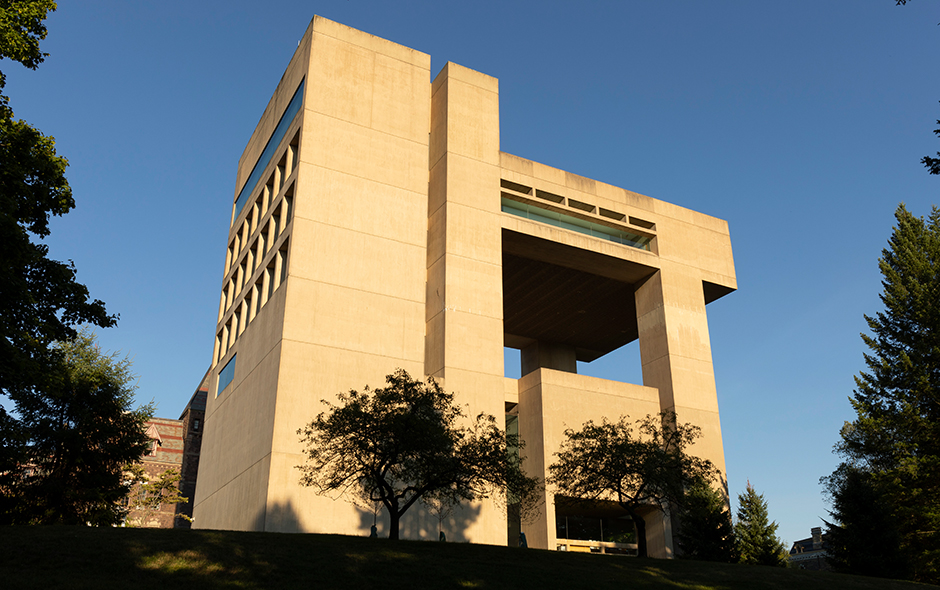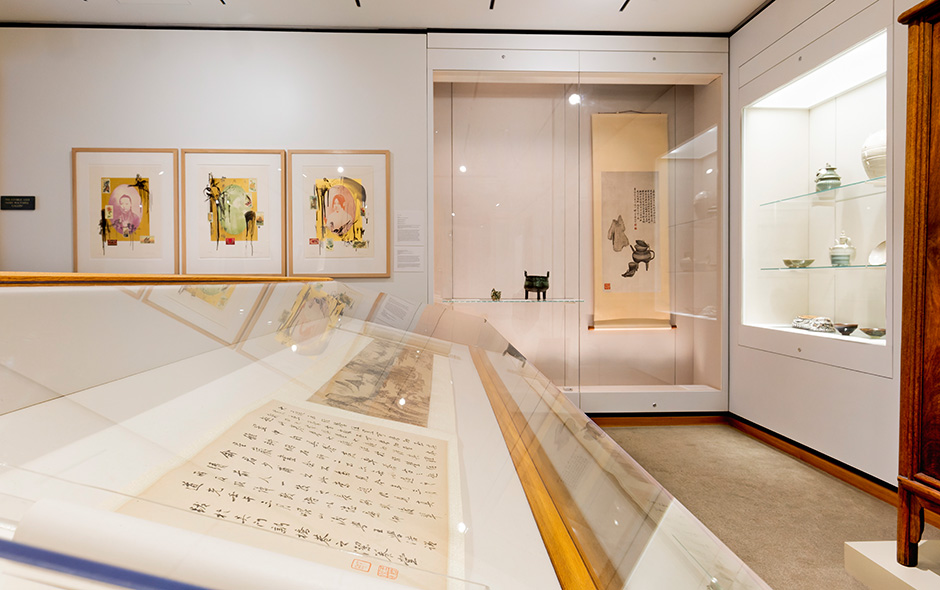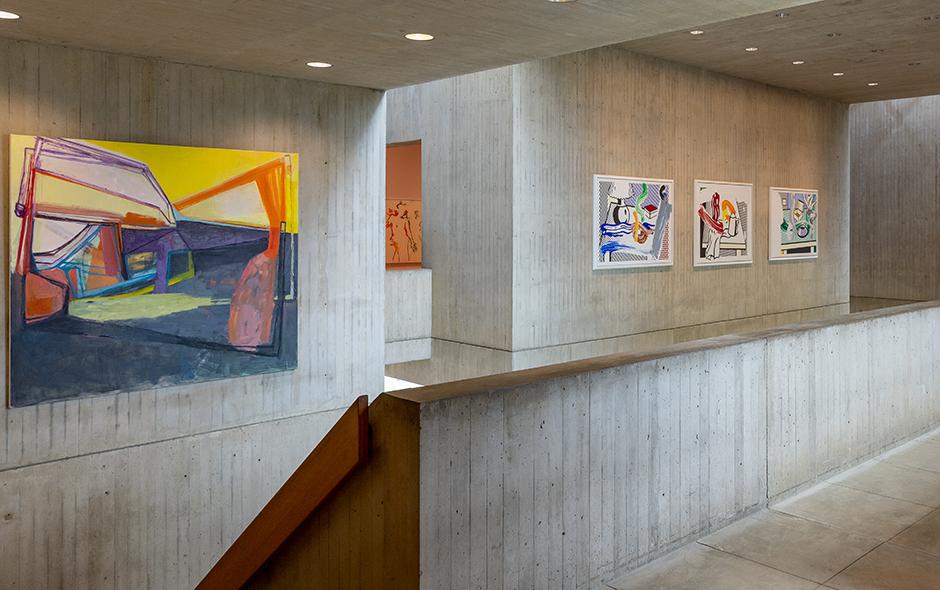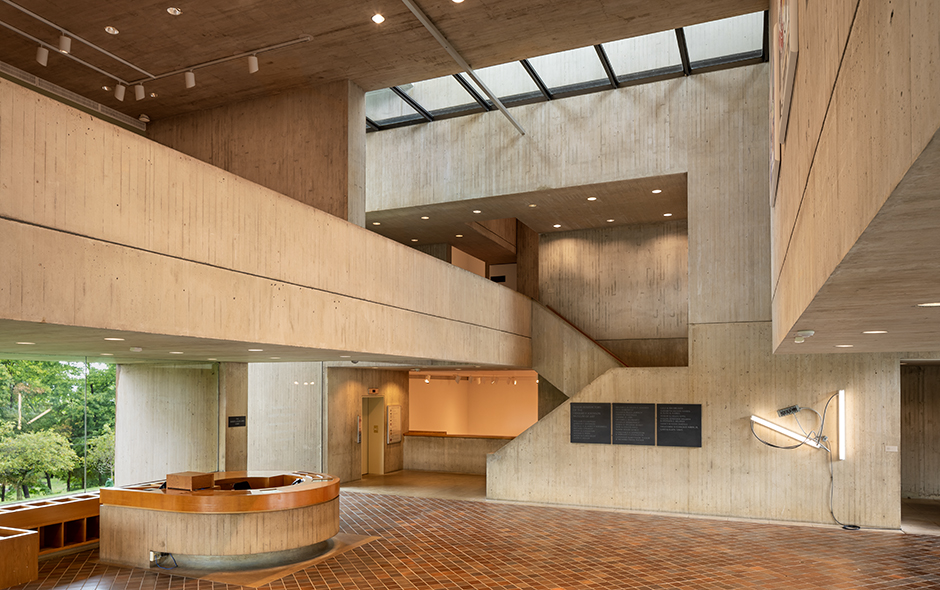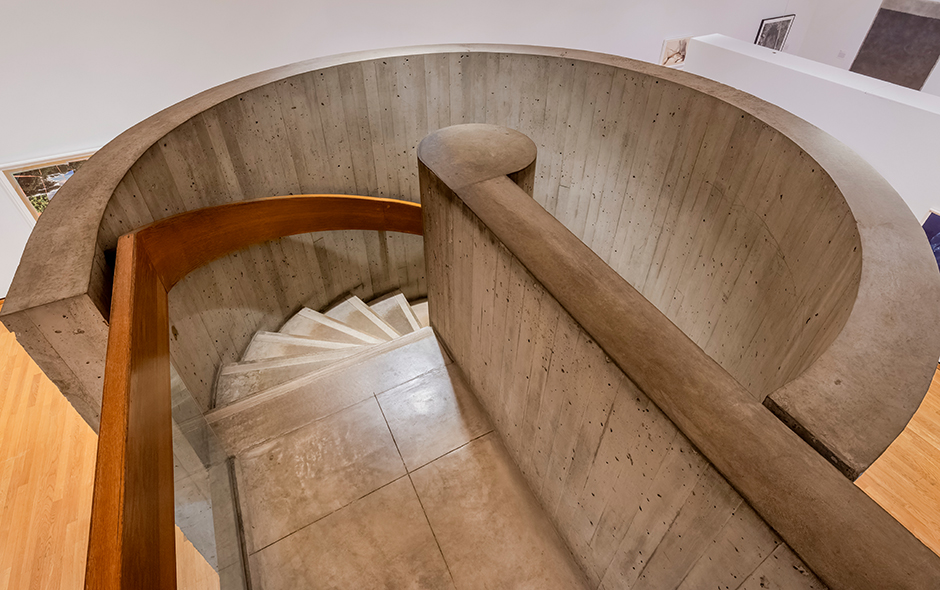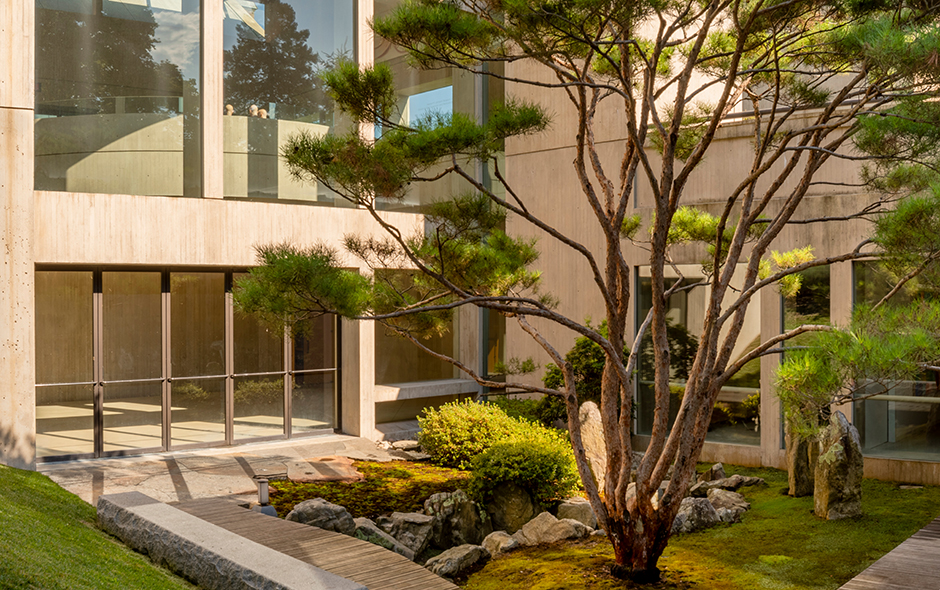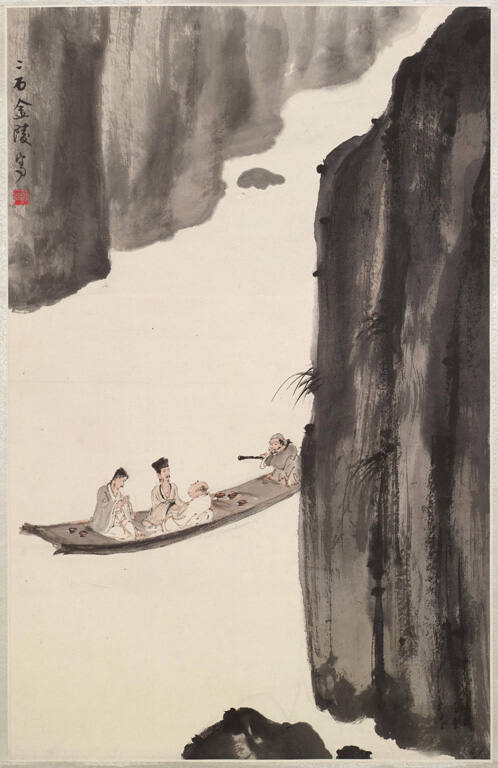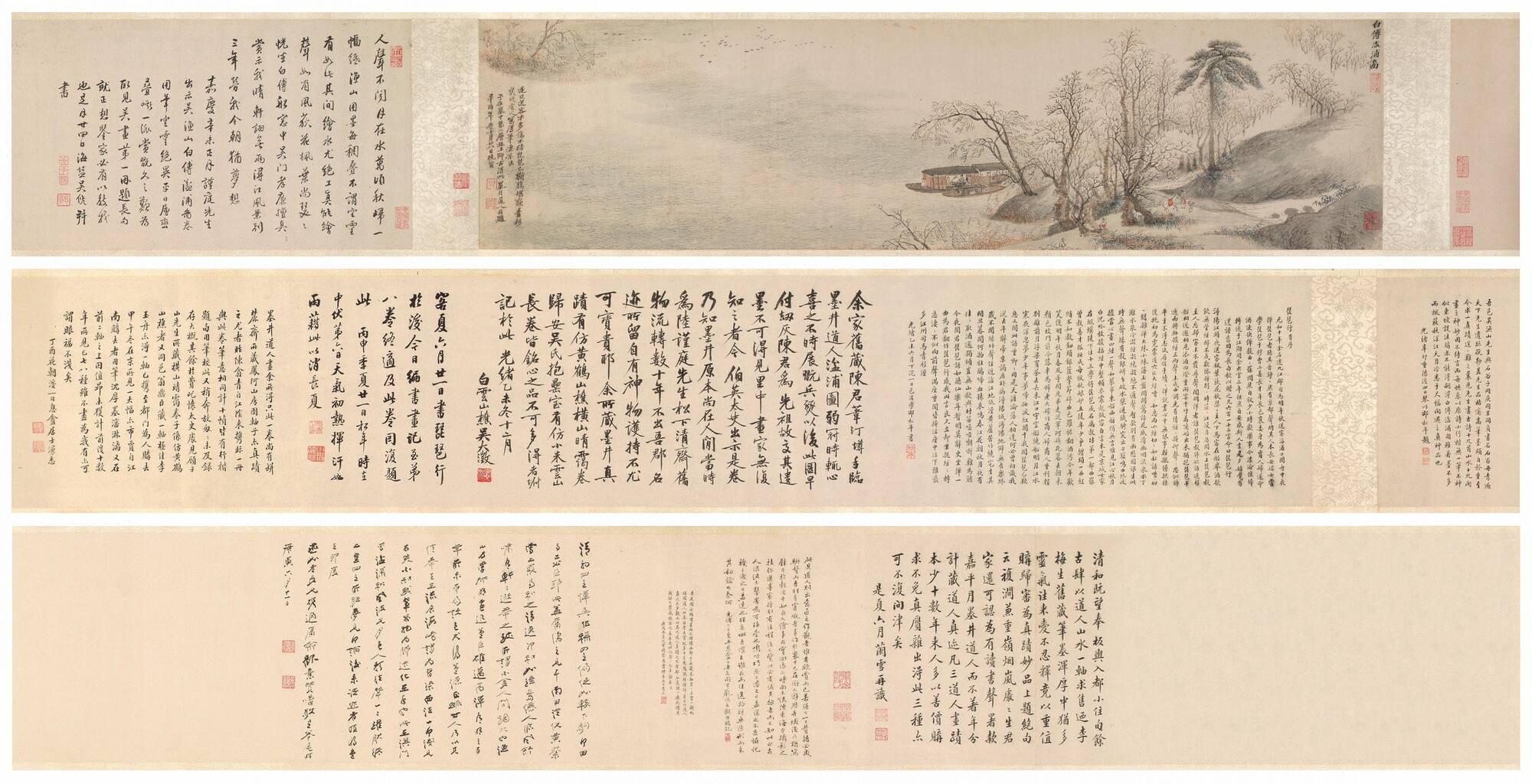
Object Details
Artist
Wu Li
Date
Qing dynasty, 1681
Medium
Handscroll: ink and colors on paper
Dimensions
10 x 39 1/4 inches (25.4 x 99.7 cm)
Credit Line
George and Mary Rockwell Collection
Object
Number
65.665
The subject of this short handscroll is taken from one the best-known poems of the famous Tang poet (…)
The subject of this short handscroll is taken from one the best-known poems of the famous Tang poet Bo Zhuyi. Composed in 816, the poem tells the tale of the exiled poet who late one autumn evening hears the sounds of the lute from a boat moored by the riverside and finds a former lady of the court, now married to a country merchant, playing songs on the lute that remind them both of their former years at the court. The age-old themes of loneliness, political exile, remoteness from civilized pleasures, along with the lyrical enchantment of an autumn evening with moonlight on a misty river, are described by Wu Li with understated elegance in this deft handling of a great poem. Among Wu Li’s distinctions was his conversion to Christianity, a rarity among Chinese painters, and in 1680 he was baptized under the name Simon Xavier. In 1681 he started out on a journey to Rome but got only as far as the Portuguese colony of Macao, where he remained for a number of years. This painting was done shortly after his arrival in Macao, and according to his inscription he did the painting Òthinking of the past.Ó Despite Wu Li’s exposure to Western works of art, this painting betrays no Western influence, and in this sense, in both subject matter and style, it is indeed a true tribute to the Chinese past. (From “A Handbook of the Collection: Herbert F. Johnson Museum of Art,” 1998)



